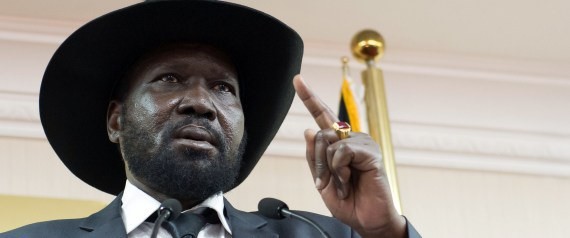Salva Kiir, the leader of the Sudan People’s Liberation Movement faction in Juba, which controls the national government and part of the divided army, is expected to give a public address on Wednesday at the John Garang Mausoleum in Juba.
The president’s office has announced that preparations for the public rally have been completed and all the members of the general public, diplomatic corps and members of the international organisations in Juba have been invited. Civil servants and secondary school students will also be mobilized for the event.
The information office at the national secretariat of the SPLM Juba faction also announced to the general public that it will hold a rally to be addressed by President Salva Kiir on Wednesday.
Ramadhan Mohamad, the SPLM Secretary for Information says all preparations are in place and the president is now prepared and ready to brief the citizens on all aspects of the peace process.
The event was originally scheduled for last week but was postponed after an internal controversy in the government over the draft text of Kiir’s speech, with some senior officials reportedly cautioning the president against hostile remarks against Western countries and the United Nations.
Several countries including the United States have been criticized by SPLM-Juba for threatening to impose sanctions on warmongers, and Kiir himself has previously lashed out against the United Nations.
The speech will provide Kiir the opportunity to relate to the public what transpired in the last round of direct negotiations between him and the rebel leader Riek Machar. Thus far he has not given public explanation for why the talks failed.
Meanwhile, an observer speaking today cautioned that peace will not be attained if hardliners on both sides feel that an agreement would undermine them or exclude them from participation in the transitional arrangements.
“If the hardliners are sidelined, they are just going to say no and if they say so, it means little chances for implementation of the peace agreement, no matter however much support it might receive from the region,” said Jackson Deng Alfred.
“If they see no place for them on the political landscape, they will we opt for violence to make them be heard. They might pose a security risk, not only in the short-term perhaps in the medium to long-term.”




